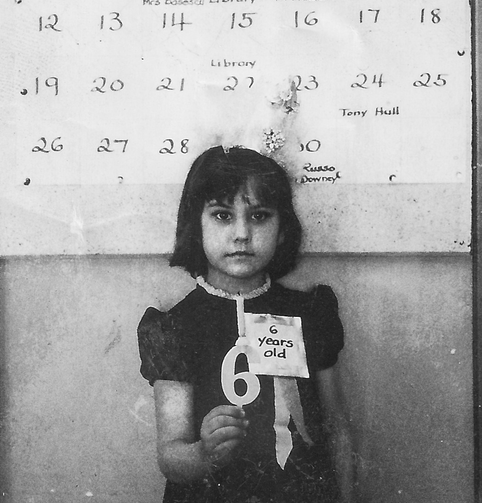A new immigrant to the United States learns at a young age to enter public areas with caution, alert to hidden dangers. So when I spot a Mexican man in the center aisle of a home improvement store in our Midwestern city, I am not surprised that he looks anxious, shifting his weight from one foot to another, his eyes darting left and right. He is short—maybe five feet tall in his heavy work boots—with a bushy, black mustache. I do not know for certain that he was not born here, but his furtive glances at the overhead signs suggest he does not read English.
I slow my cart, remembering a frightening experience from my childhood.
A new immigrant to the United States learns at a young age to enter public areas with caution.
“Look at the treetops, Alicia!” my mother says as we creep along on shaded streets in our new Ford family station wagon. “The American oak trees are so tall and their branches are so wide they meet at the top, like friends hugging each other.”
She speaks to me in Spanish, but she is fluent in English thanks to her American teachers in Cuba. And thanks to American television, I have learned English fast.
We stop at a new grocery store on the far side of town and push our cart up and down every aisle, but we put only a few items in our cart. “It’s expensive here,” she whispers in Spanish.
As we wait in the checkout line, I notice the man behind us. He is watching my mother. I feel uncomfortable without knowing why. He takes a step forward and says in a low voice, “What are you doing here?”
My mother looks up, startled. “Hello. I—I am shopping.” Her English is perfect, but her voice is high, as if she is asking a question.
“You do not belong here,” the man growls. My mother turns to the cashier and holds out a coupon. But the cashier does not take the coupon; her eyes are fixed on the man. Everyone is looking at the man when he hisses, “Go back to where you came from, spic.” I do not know the word “spic,” but it hits my ears harshly, like the word spit.
Nobody moves at first, not even my mother. But when the man pushes past me to force her out of the narrow aisle, she turns to run and pulls me after her. When we are safely inside our car, I push down all four locks. My mother is trembling as we pull away.
I want to believe things are better now, but I fear things are getting worse.
That was over 50 years ago. I want to believe things are better now, but I fear things are getting worse.
A long minute passes, and the man in the center aisle has not moved. I am about to step forward to help translate the overhead signs when a burly employee in an orange apron appears beside him. I tense. But the employee is a good man. You can see things like this at a glance. The way he ducks his head to meet the man’s lowered eyes. The way he nods encouragingly. The way he speaks softly. The way he concentrates on the customer’s gestures with the interest and respect of an apprentice or a friend. I let out a breath. I did not realize I was holding it.
He gives me hope, this employee. I want to thank him when he is done helping the man. I want to remember that he and others like him have more collective power than any politician, even a demagogue. If only he or someone like him had been at that grocery store years ago to stand up for my mother, to treat her with kindness and respect.
Driving away from the home improvement store I look up at the treetops and repeat my mother’s words like a prayer.











Even more so, today. These are strange times that we live and witness today. In some ways it seems that we must take a "side". In other ways it seems that we are called to care. Deeply care for others.